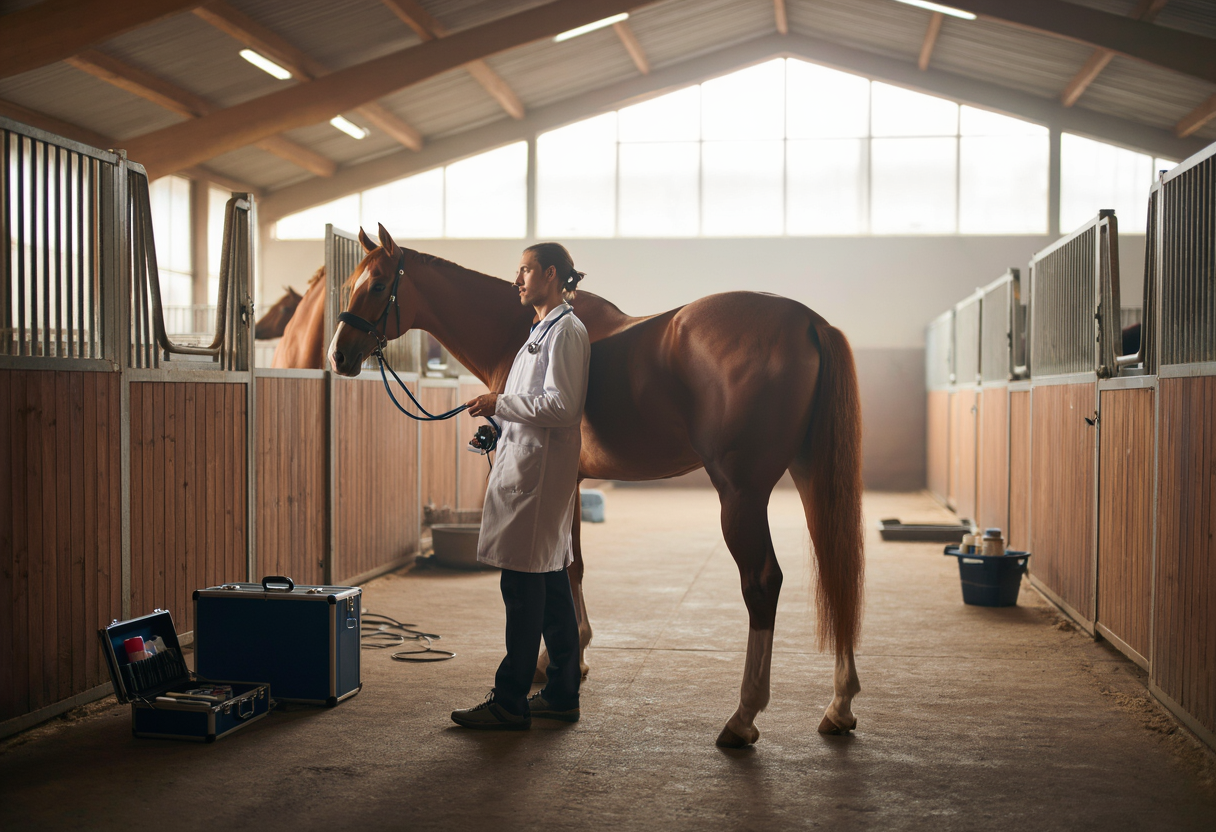Understanding Equine Veterinary Services: The Lifeline for Your Horses
Equine Veterinary Services play a crucial role in the health and well-being of horses. From preventive care to emergency treatments, these specialized services ensure that equine athletes and companions remain in top condition. This article explores the various aspects of equine veterinary care, emphasizing the importance of professional expertise in maintaining equine health.
Importance of Equine Veterinary Services
Equine Veterinary Services are essential for horse owners who want to ensure the optimal health and performance of their animals. Regular veterinary check-ups provide opportunities for early disease detection, which is vital for preventing serious health issues down the line. Moreover, equine veterinarians offer specialized knowledge in diverse fields, including nutrition, reproductive health, and emergency care. The importance of these services cannot be overstated, as they form a foundation for maintaining a horse's overall well-being. Veterinary services not only treat existing conditions but also play a role in educating horse owners about best practices in care. By keeping horses healthy, owners can enhance their animals’ longevity and performance. Thus, investing in equine veterinary services yields significant long-term benefits for horse health and management.
Types of Equine Veterinary Services
Equine Veterinary Services encompass a wide range of procedures that cater to the unique needs of horses. Routine health examinations are a standard part of equine care, with vets checking for common ailments and vaccinations to prevent disease outbreaks. Furthermore, specialized services, such as dental care and hoof trimming, are critical aspects that should not be overlooked. Emergency medical care is another key area, addressing injuries or acute illness situations that may arise during training or competition. Additionally, reproductive services assist breeders in ensuring healthy pregnancies and foal deliveries. The versatility of equine veterinary services directly correlates to improved outcomes for horses, making these services invaluable for both competitive and recreational equestrian enthusiasts.
How Equine Veterinary Services Contribute to Performance
The connection between equine health and performance cannot be ignored when discussing Equine Veterinary Services. By providing tailored health management, vets can optimize a horse's physical capabilities. Regular assessments allow veterinarians to create individualized care plans that align with the specific needs of each horse, be it for competition or leisure. Through advanced diagnostic tools, such as ultrasounds and endoscopy, veterinarians can detect health issues that may impact performance. This proactive approach not only helps in addressing problems early but also enhances the horse's overall performance capabilities. In high-stakes equestrian events, the significance of having a knowledgeable equine vet cannot be overemphasized. Their expertise is key in maintaining peak performance levels and ensuring safe participation in rigorous activities.
The Role of Technology in Equine Veterinary Services
Advancements in technology have significantly transformed Equine Veterinary Services, enabling veterinarians to provide more efficient and effective care. Innovative tools, such as telemedicine, allow for remote consultations, making veterinary expertise more accessible to horse owners. Additionally, diagnostic imaging techniques, such as MRI and CT scans, have revolutionized the ability to identify and treat conditions that were previously hard to diagnose. This technological integration not only enhances diagnostic accuracy but also accelerates treatment timelines. Furthermore, continuous education in the latest veterinary technologies ensures that equine practitioners stay updated on best practices in the field. As technology evolves, so too will the approaches taken within equine veterinary services, promising better health outcomes for horses.
Choosing the Right Equine Veterinary Services
Selecting an appropriate service provider is paramount for horse owners seeking Equine Veterinary Services. Factors to consider include the vet's qualifications, areas of specialization, and experience with specific horse breeds or disciplines. It's essential to find a vet who communicates effectively and shows a genuine interest in the well-being of the horse and the owner's objectives. Additionally, clients should evaluate the clinic's facilities and the availability of emergency services. Referrals from fellow horse owners or trainers can also guide the selection process. Establishing a solid vet-client relationship fosters trust and facilitates better veterinary care tailored to the unique needs of each horse.
Conclusion: The Value of Equine Veterinary Services
In summary, Equine Veterinary Services are a crucial investment in the life and health of horses. From routine check-ups to specialized care, these services ensure that horses remain healthy, happy, and competitive. The impact of comprehensive veterinary care extends beyond individual horses to influence the broader equestrian community. As horse owners, recognizing the pivotal role of veterinary professionals can empower us to make informed decisions about our animals’ health care. Embracing these services not only improves performance but also contributes to the overall safety and enjoyment of horseback riding and equestrian activities.
